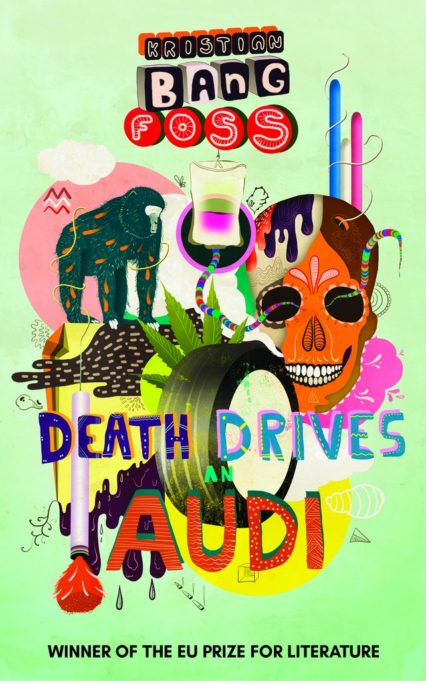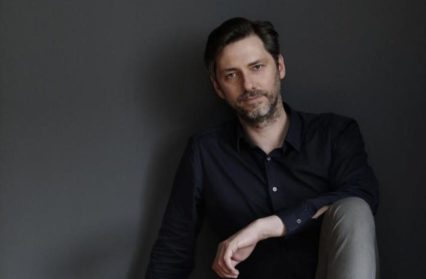Glen James Brown reviews Death Drives an Audi, a darkly comic story of two unlikely friends written by Kristian Bang Foss and translated by Caroline Waight.
Literature is rich with road trips. Sal Paradise and Dean Moriarty in On the Road (of course), Lolita’s Humbert Humbert and Dolores Haze, Phileas Fogg and Jean Passepartout in Around the World in Eighty Days, to name just a few of the most famous. The tradition meanders back centuries — long before the invention of the combustion engine — to the modern novel’s original pilgrims: Don Quixote and Sancho Panza. Kristian Bang Foss’ tender, tragicomic novel Death Drives An Audi — published in English by Parthian Books — is a wonderful new addition to the genre; though unlike the novels above, his protagonists have no consciousness to explode or windmills to tilt at. His story is instead for those whose horizons barely extend to the nearest Aldi.
A snafu involving a cultural fair, a JPEG of a spaghetti-eating Sikh and league of Italian neo-fascists lead to advertising exec. Asger losing his career and his family. In desperation, he takes a job caring for Waldemar, a taciturn ‘vampire-white’ twenty-two-year-old confined mostly to an electric wheelchair. Waldemar lives in a high-rise on the wrong side of the tracks, in a neighbourhood of deprivation and racial tension. Welfare is enough — just — to keep him there, but no more. With external escape out of the question, Asger and Waldemar are forced to flee to the only place left available to them — inwards.

They fill their days with the minutia of life, inflated to life-sized proportions. In-jokes about mind-numbing daytime TV like Extreme Makeover and Yummy Dreams commercials. Debates on optimal conditions for charging batteries; trips to the precinct for chicken and Rawlplugs. A stoned IKEA-odyssey to acquire high pillows for side sleepers:
“That’s a bloody high pillow,” I said.
“It’s a proper side-sleeping pillow.”
“You’ll break your neck if you turn over in your sleep.”
“That’s the way we side sleepers like it.”
And we kept going like that.
Barred from traditional adventure by fate and circumstance, Asger and Waldemar fashion it from the meagre scraps available to them. ‘And when the emptiness occasionally threatened to break through the thin veneer we were constantly painting over it with our silly chores, saying something even sillier helped to conjure the emptiness away’. The deadpan gallows humour is one of novel’s major strengths — natural and affectionate, and, in its lightness of touch, ringing true.
But then an unexpected windfall lets them hit the road for real — to Morocco, where Waldemar believes a faith healer can cure him. Their journey across Europe is filled with weird diversions and even weirder people, bringing the Quixote / Panza comparison into ever sharper relief the closer to Cervantes’ homeland the two friends get. Yet their dynamic isn’t as clear-cut as wily squire to deluded knight-errant. Asger and Waldemar are co-dependent, out of their depth, but as Foss cranks up the surrealist set-pieces, it is this needling, genuine friendship that holds the book together. Delusion itself becomes a key concern. Waldemar’s condition — at what point does genuine hope curdle into harmful fantasy? When does a friend stop being encouraging and start enabling? The friction between screwball surrealism and cruel social-reality is the beating heart of Foss’ novel.
Maybe it is the Reaper stalking them across continents in a death-black Audi… but then, maybe it isn’t. Is it even important? As long as you’ve brought a mate along with you to take the piss out of, perhaps it is, as they say, the journey which matters, not the destination.
Death Drives an Audi by Kristian Bang Foss (translated by Caroline Waight) is available to pre-order now and will be released by Parthian in May 2021.
Glen James Brown is a regular contributor to Wales Arts Review. His latest novel, Ironopolis, was shortlisted for both The Orwell Prize 2019 and The Portico Prize, and is available now from Parthian.











